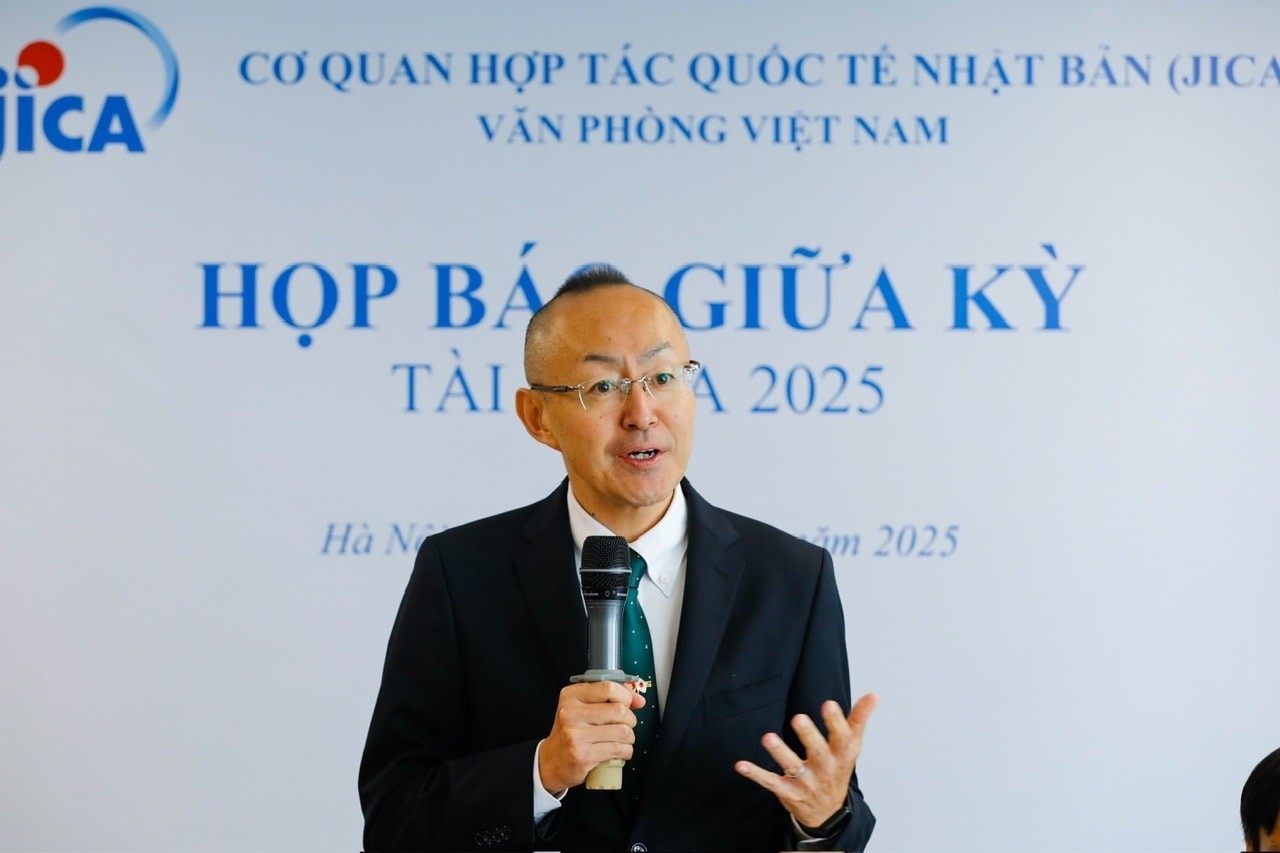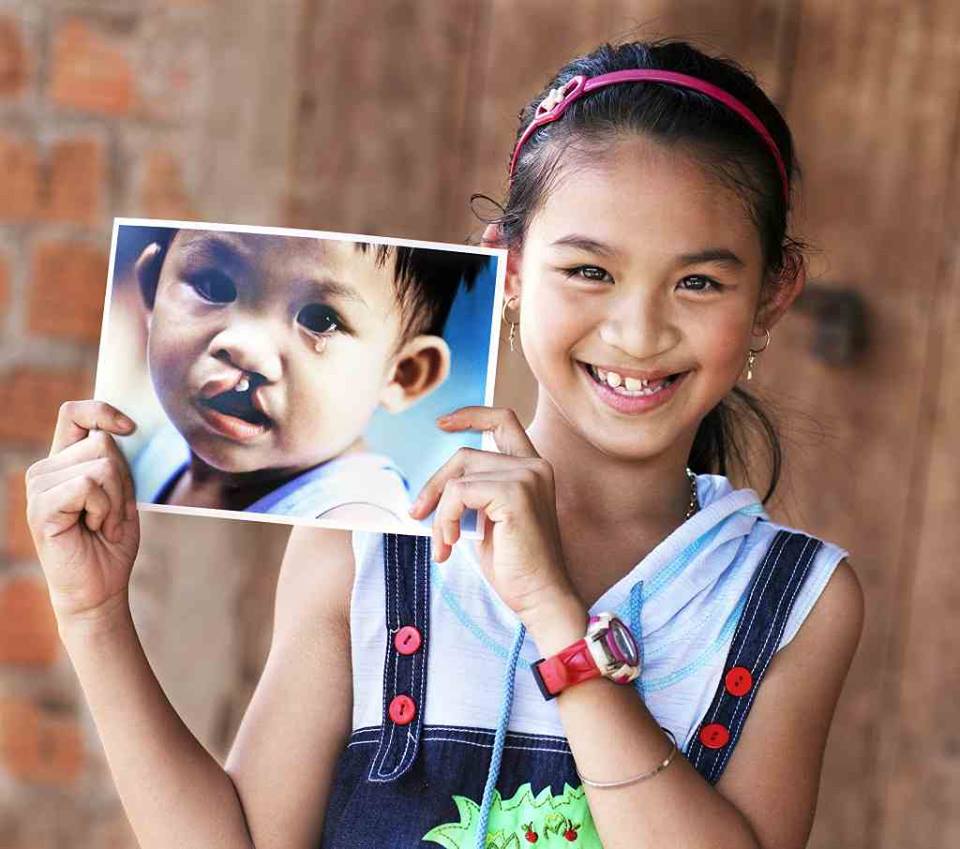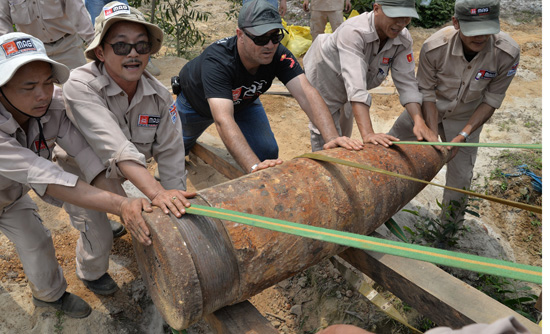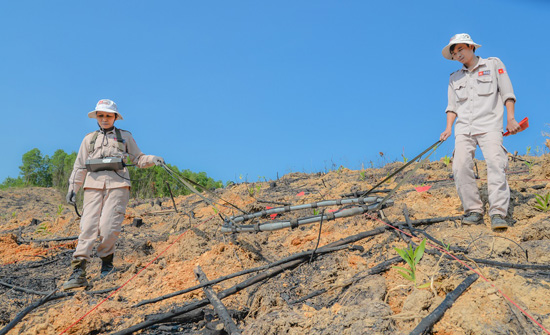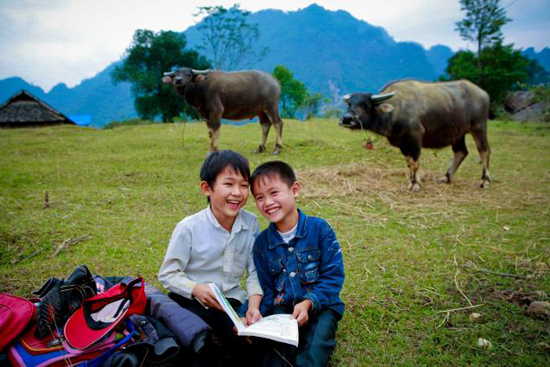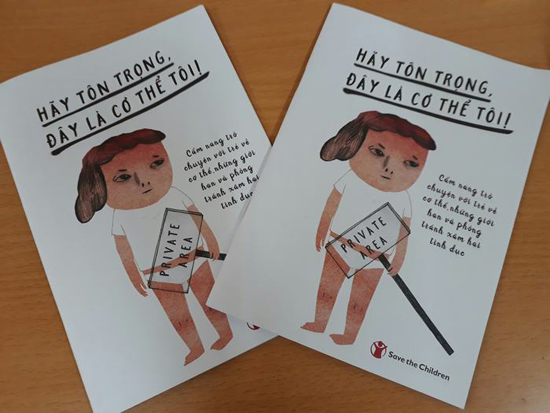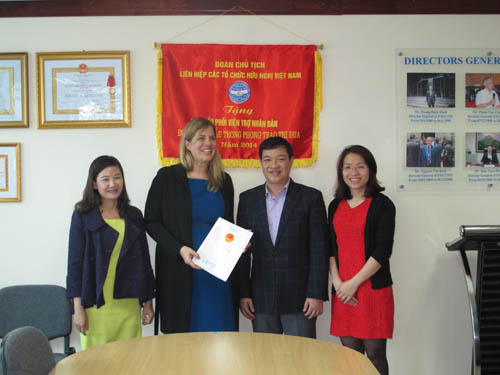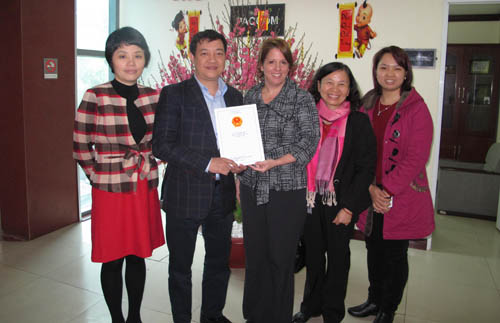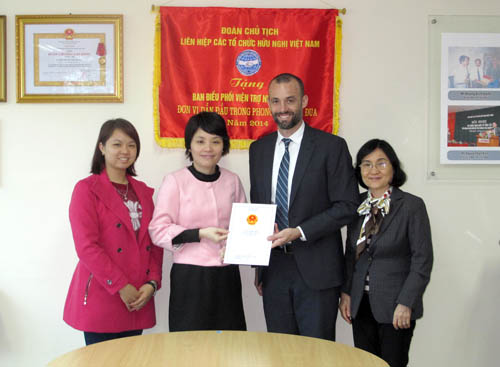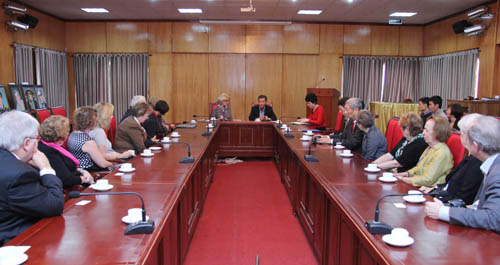Previous rural development projects of HELVETAS and CRED in Hoang Su Phi and Cao Bang have shown that this region is ideally suited for community-based tourism initiatives. This type of tourism is managed and owned locally by and for the community and offers tourists the chance to learn and experience local culture, working environment and lifestyle of local communities. Hoang Su Phi and Cao Bang are home to many ethnic minorities that have kept their unique traditions but are also one of the poorest people in Vietnam. Additionally, breathtaking landscapes such as rice terraces, limestone mountains and impressive waterfalls make the project region an ideal place for sustainable tourism activities.
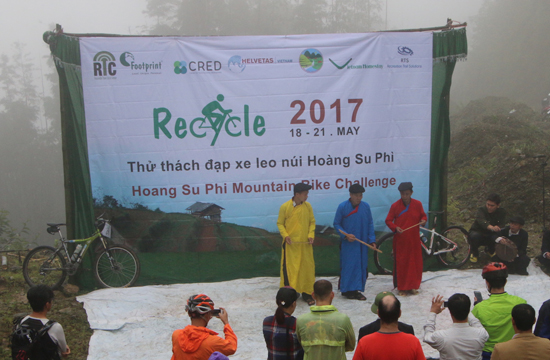
From the project inauguration in 2015, HELVETAS and CRED have conducted a number of visits to assess the social economic situation, main income source of local people, gender role in current production activities as well as to check the willingness of locals towards CBT development. Based on these visits, frequent discussions with locals, government authorities and tourism experts HELVETAS and CRED have established business partnerships with 6 villages and trained locals to provide quality tourism services to visitors.
The first commercial tour is the “Hoang Su Phi Mountain Bike Challenge” from 18 to 21 May 2017. This tour is an important first step in establishing various community-based tourism activities in the area. Apart from cycling, participants will interact with locals and do a day of voluntary work that directly benefits a local ethnic minority village. The trip is free of charge but requires a donation to a local community fund. More tour packages and activities are currently being developed and will be offered by the umbrella organisation Vietnam Responsible Tourism (VRT) in the near future.
Developing market based pro-poor value chains lies at the heart of the project. In the past many CBT projects have failed due lack of market demand and limited capacity of locals to organise and deliver good services. The establishment of Vietnam Responsible Tourism will support individual CBT partcipants to ensure quality services as well as helping them to gain wider recognition in the international tourist market. VRT furthermore will guarantee that economic, environmental and social sustainability are upheld to the highest standards during project implementation as well as facilitate good governance between all partners.

HELVETAS Swiss Intercooperation is one of the most experienced and largest development organisations in Switzerland. It came into existence on 1 July 2011 with the merger of two organisations: Helvetas (founded 1955) and Intercooperation (founded 1982). HELVETAS is working in Vietnam since 1994, in the sector of Agriculture & Forestry, Governance & Peace; Water & Sanitation and Rural Development.
Center for Rural Economy Development (CRED) is an in-country off shoot of HELVETAS Swiss Intercooperation in Vietnam. CRED has years of experience in strengthening rural economic development across Vietnam and Mekong region focusing on the development of existing and emerging agricultural markets and value chains, ensuring greater inclusion of the poor and marginalised groups in agricultural development as well as providing off-farm opportunities for rural communities.

